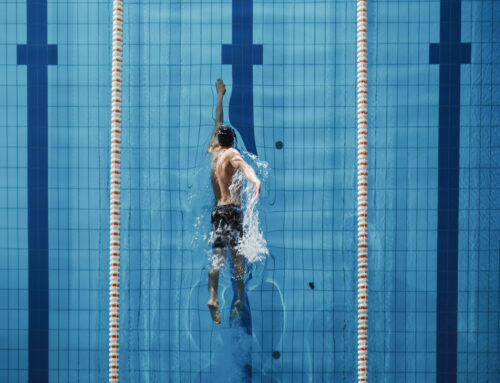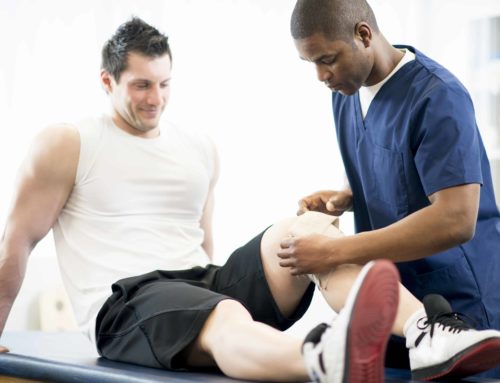While I can create a long list for you of why athletes are at risk for eating disorders and all the factors that stack the deck, I can create an equally long list of skills athletes bring the process of recovery. In some ways, the two endeavors are very similar: athletics ask us to work towards challenging goals using our body, mind and spirit, and recovery does the very same thing.
Top ten skills athletes can transfer to eating disorder recovery.
1) An athlete must develop a sense of personal responsibility, and accept strengths and weaknesses.
An athlete who is willing to be honest about strengths and weaknesses on the field and with her treatment team, will be able to use those strength to her advantage and get support and education around improving weaknesses. Athletes often see weaknesses as an opportunity for improvement vs. a flaw or imperfection.
2) Athletes know how to work on a team and give and receive help.
Athletes know that it feels good offer help- either by making a pass to further the ball to the goal, or providing emotional support to another teammate. There are inevitable times when an athlete needs to receive help- either on the field or off the field in order to be their best. One powerful element of recovery can be connection with others on the same path and treating those individuals as one’s “recovery teammates.”
3) Athletes know that small goals lead to bigger ones.
If you desperately want to make the varsity but it is a long-shot, sitting on the couch worrying about it isn’t going to help your goal. You know that doing drills and improving your endurance will feel better than inaction. Because sports are so physical and concrete, there is no hiding the fact that taking action is the only way to get better. Recovery is the same way. Even though the end goal can seem elusive and far off, the main objective is to focus one the smaller goals and to get moving!
4) Athletes are familiar with fear and anxiety.
Giving up the habits and behaviors that make up an eating disorder and all the ways it feels like they keep you safe, can be terrifying. Athletics are also full of moments before the game starts or on the starting line that can feel scary. But the race or the game begins and you have no choice but to participate. Allowing the process of recovery to start even if you feel full of anxiety, can be reminiscent of athletic fears that you have endured many times already.
5) Athletes must be coachable, willing to take suggestions and advice.
Athletes very often have a respect and eagerness for being “coached.” They know it is the key to improvement. An athlete in recovery has the opportunity to be “coached” by a nutritionist, a therapist, a medical doctor, and often others on the treatment team. If they can transfer their athletic “coachability” they can make improvements far more quickly than if they have at attitude of resistance.
6) Athletes understand that sitting on the sidelines or holding back does not help you towards your goal.
An athlete who comes home with a crisp white uniform on game day is likely more disappointed than a sweaty, muddy athlete who lost. Being willing to jump in there, be honest, work at things, and take risks might get you a little muddy some days, but it is going to do more for you than just watching others play the game.
7) Athletics helps cultivated perseverance and resilience.
No matter how good you are as an athlete, you will have good days and bad days, wins and losses and you understand that is part of the game. This can be very helpful in the recovery process as there too you will have days that feel full of hope and success, and days that feel like everything moved backwards. But the knowledge that this is part of the process makes it easier to take them in stride.
8) Athletes tend to feel best with a training plan and to have things to work on.
There is so much hope and excitement in a training plan tailor made for you that is designed to make you better at the sport you love. You know what it is that you have to do and even though it can feel challenging, that challenge is invigorating. Treatment plans are tailor made by professionals to help you improve. See this as your training plan for recovery.
9) Athletes have developed a discipline and focus for learning new skills.
Much of recovery is about letting go of coping mechanisms and learning new and healthier ones. This involves a lot of discipline and focus. Athletes are well trained at skill development and this can bring confidence with their approach to learning new skills in recovery.
10) Within athletes there is a an intrinsic motivation and drive to be successful.
Athletes tend to be motivated people who are inclined towards hard work. Investing that work ethic into recovery can be a challenge because it doesn’t hold the promise of an external reward, but it is the foundation of a healthy, rewarding life and athletic career.
Learn more about the GOALS eating disorder recovery program for athletes.
About the Author:
Whitney Post is Co-Founder of the Eating for Life Alliance (ELA), which provides educational resources to colleges on the treatment and prevention of eating disorders. Walden is a treatment affiliate of ELA. As a clinician, she designed or implemented eating disorder treatment programs including overseeing the IOP program at Walden. Based on her own experience as a World Champion, she specializes in athletes and eating disorder recovery.




